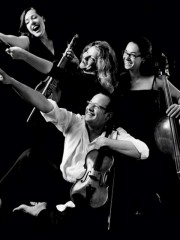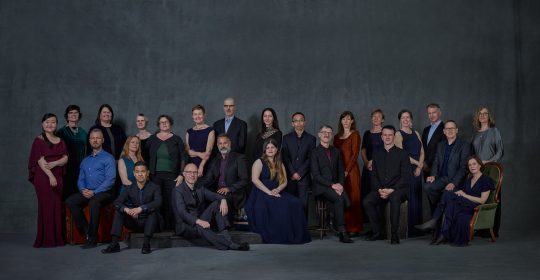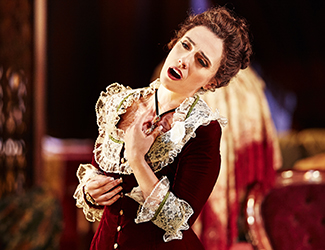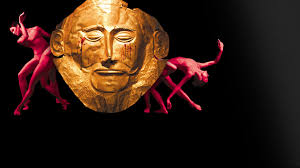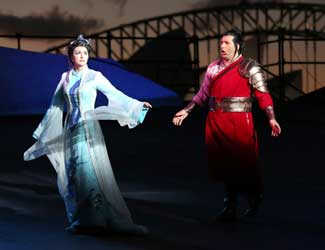Concert Review: The Metropolitan Orchestra/ The ‘Great’

‘The Metropolitan Orchestra, conductor Sarah-Grace Williams
Violin soloist Glenn Christensen
20 August 2016, Eugene Goossens Hall, ABC Centre, Ultimo
Written by Larry Turner
The Metropolitan Orchestra is arguably the doyen of Sydney’s non-salaried symphony orchestras. In the fourth concert of their main 2016 Sydney series they performed just two works which are now standard repertoire but neither of which was successful during their composer’s lifetime.
Beethoven wrote his violin concerto in the uncharacteristically short period of just a few weeks for a benefit concert in Vienna in December 1806. Its completion was so delayed that by the time the orchestral parts were copied there was time for only a single rehearsal. Unsurprisingly, the work was not initially well received. There were no such fears on this occasion however as this performance under The Metropolitan Orchestra’s Artistic Director Sarah-Grace Williams was very well prepared.
The violin soloist was the young virtuoso Glenn Christensen whose career has been advancing rapidly. Shortly after graduating from university he was appointed Principal First Violin with the Queensland Symphony Orchestra and he is now a member of the Australian Chamber Orchestra.
Christensen’s playing gained in confidence and projection as the performance progressed. Initially there were some minor issues of intonation and precise figuration, but these were soon supplanted by some superb playing and especially spot-on intonation in the highest register. His approach to the work was energetic whilst observing the score’s frequent dolce markings. He launched vigorously into the concluding rondo but this resulted in some unsteadiness in the synchronisation with the syncopated orchestral cross-rhythms. Christensen played the Kreisler cadenzas: the first with a leisurely, romantic freedom of expression and the virtuoso last movement cadenza with fiery assertiveness and technical finesse.
The orchestra provided excellent support throughout. The strings demonstrated disciplined unanimity of phrasing and dynamics throughout. In the opening they provided a bed of rich sonority and in the slow movement their contribution was almost rhapsodic. Among the wind, there were some nicely phrased contributions, especially from the bassoonist Tony Grimm.
The designation of ‘The Great’ for Schubert’s ninth symphony, in C major, may well have been an editorial label to distinguish it from his earlier symphony in C (number six), but it is also appropriate for its almost unprecedented length. Completed in 1826, just two years before his death, it is much longer than most of the symphonies of that time – approaching the length of Beethoven’s ninth, which was first performed just a year before Schubert started writing this, his last symphony. The work’s length has been the subject of both positive and negative comment. In writing to Mendelssohn, Schumann praised its ‘heavenly length’. However in 1892 we find George Bernard Shaw, a usually perspicacious music critic, complaining that ‘a more exasperatingly brainless composition was never put on paper.’ The Metropolitan Orchestra’s performance made it easy to side with Schumann, even if the length did not include all the notated repeats in the last two movements.
The work opens with an unaccompanied horn call, a motif which permeates the rest of the movement. This exposed entry was handsomely played by the two horns (Michael Wray and Adrian Hallam). Sarah-Grace Williams opened with a sensible, flowing tempo and her transitions to faster tempi were well judged and executed.
In the second movement the oboe solos were very attractively played by Matthew Bubb with an appealingly warm and rounded tone. His dialogues with the clarinet were nicely answered by the principal clarinettist Andrew Doyle. The strings again demonstrated their impressive unanimity, with some notably well-blended cantabile playing from the cellos.
The wind instruments had more prominence in the third movement, especially in the swaggering trio section which provided further opportunities to hear the excellent wind principals, including fine flute playing from Alexandra Castle. The last movement was presented in a genial manner, perhaps less dramatic than some other interpretations. It provided a satisfying conclusion to an excellent performance.
The next concert from the Metropolitan Orchestra will be on 12 November. It will include standard repertoire works by Mendelssohn and Beethoven as well an intriguing work for Basset clarinet by Elena Kats-Chernin.
SoundsLikeSydney©
Larry Turner is an avid attender of concerts and operas and has been reviewing performances for Sounds Like Sydney for several years. As a chorister for many years in both Sydney and London, he particularly enjoys music from both the great a capella period and the baroque. He has written programme notes for Sydney Philharmonia, the Intervarsity Choral Festival and the Sydneian Bach Choir and is currently part of a team researching the history of Sydney Philharmonia for its forthcoming centenary.


